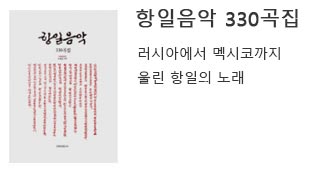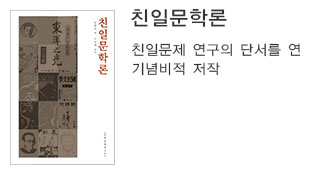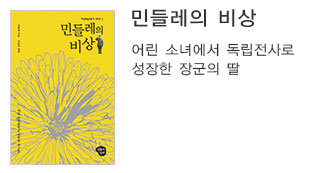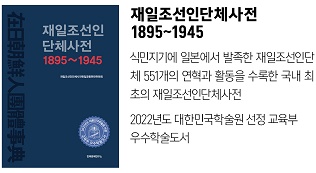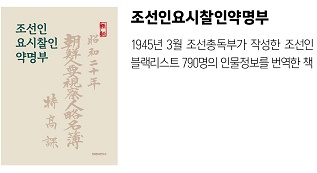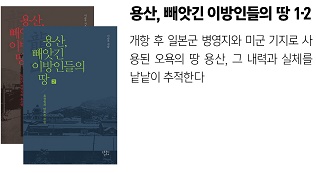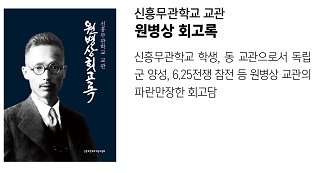“민족문학연구회 친일문학상 폐지운동”

(사)민족문제연구소(이사장 함세웅) 산하 민족문학연구회가 문예지 <민족문학사상>을 창간했다. 화보로 보는 민족문학연구회 활동, 조한성(민족문제연구소 선임연구원) 박사의 권두언 ‘프랑스는 대독협력 문인들을 어떻게 청산했나?’를 비롯해 회원들의 시와 소설 등을 게재했다. 신작시에는 박설희, 백무산, 송경동, 최종천, 하종오 등 16명의 시인들이 전쟁과 문학을 제재로 한 창작시를 실었다. 김옥숙과 노은희의 전쟁 제재 단편소설을 실었고, 김윤환의 동시와 이주영의 전쟁 제재 동화를 실었다.
안승우(강릉원주대 철학과) 교수의 글 ‘옛 문인들의 민족문학 의식1 – 풍류風流로 살펴보는 한국적 문학의 동력’이 눈에 띈다. 창간호부터 4회 연재를 통해 민족문학 사상의 뿌리를 전통에서 찾아보고자 하는 기획이다. 최치원과 이규보, 김만중, 정약용 등의 문학을 통해 민족문학의 계보를 찾아보겠다는 계획을 하고 있다.
특집으로 ‘친일문학론의 현재’를 실었다. 이명원 박사(경희대)가 ‘친일협력의 분식粉飾과 문학사적 뒤틀림 -동인문학상과 팔봉비평문학상 폐지 문제와 관련하여’를 실었다. 김영삼 박사(전남대)수는 ‘제국과 친일문학의 생명정치 논리 -김동인의 <매일신보>에 실린 논설과 해방 이후 소설을 중심으로’를 실었다. 심영의 박사(전남대) 역시 ‘일제강점기 식민지 현실에 눈감은 순수문학 비판 -김동리와 김영랑의 경우’를 게재했다. 일제에 적극 협력한 김동인과 김기진(팔봉)과 달리 일제에 협력한 증거는 보이지 않지만 김동리와 김영랑이 순수문학론의 뒤에 숨어 식민지 민족현실에 눈감은 문장 지식인이었다는 따가운 비판을 도마 위에 올렸다.
국내외 민족문학 동향을 돌아보기도 했다. 국내는 고광식(시인, 문학평론가)이 ‘일제강점기와 분단시대 시인을 중심으로’를 다뤘다. 일제강점기 시인으로 임화와 이육사, 분단시대 시인으로 김수영과 신동엽 등을 언급했다. 외국의 민족문학 동향은 안경라(미주시인협회 이사장) 시인이 ‘외세에 흔들리는 민족과 반인권 정치를 고발하는 호세이니’를 제목으로 글을 올렸다. 외교관인 아버지를 따라 어려서 미국으로 망명, 캘리포니아에 이주한 아프가니스탄 출신 소설가의 소설 속에 비친 아프가니스탄 정치와 전쟁, 그리고 외세에 흔들리는 민족의 수난과 인권 상황을 들여다보았다. 재외동포문학 동향은 정미셸(시인, 미주시학 발행인) 문학평론가가 ‘미주지역 한인문학의 활동 현황’을 통해 미주에 사는 동포들의 미주문학 활동 전반을 소개하고 있다.
민족문학연구회는 친일문인을 기리는 문학상을 반대하는 문인 150여명이 지난 2019년 8월15일 ‘3·1혁명·대한민국 임시정부 수립 100주년’을 맞이해 독립문 서대문형무소 역사관 안에서 창립한 창작 및 연구모임이다. 친일협력 문인을 기리는 문학상과 학술상이 시행되는 문단 및 학계의 적폐와 현실을 더 이상 방관할 수 없어, 반민족 행위를 알리고 항일문학을 연구해 통일문학으로 나가자는 취지였다.
창립 후 이들은 2회에 걸친 독립운동가 기림 헌정시집 발간, 매년 정기적인 친일문학상 비판 학술세미나 등을 개최해오고 있다. 또 유력한 중앙일간지에서 시행하는 친일협력문인을 기리는 문학상 반대 운동을 활발히 벌여 미당문학상(2019년부터 시상 중단)과 팔봉비평문학상(2022년부터 시상 중단)을 중단시키는 데 성공했다. 현재 조선일보에서 시행하는 동인문학상 폐지 운동을 벌여오고 있는 이들은 조선일보 측에 일제에 적극 협력한 문인인 김동인을 기리는 동인문학상을 폐지하든가 신문사 이름을 딴 ‘조선일보문학상’으로 상 이름을 변경할 것을 요구하고 있다. “대독협력 문인들에 대한 숙청은 재판소에 의한 사법적 처벌, 정부가 주도하고 직업단체들이 참여하는 직업 숙청이 있었다. 이외에 전국작가회의의 블랙리스트 발표, 문인단체들의 자체 징계 등을 통한 민간의 자정 노력도 있었다. 먼저 사법적 처벌의 경우 문인들은 언론인들과 하나로 묶여 가장 먼저 강도 높은 처벌을 받았다. 문인·언론인이 가장 먼저 처벌된 이유는 전국적으로 유명한 인사들이 많은 데다 대독협력 과정에서 가장 분노를 많이 불러일으킨 인사들이었기 때문이다. 따라서 어느 분야보다 철저한 청산을 요구하는 목소리가 높았다. 또한 이들은 여기저기 발표한 글도 많아 처벌할 증거도 많았다.”- 조한성, ‘프랑스는 대독 문인들을 어떻게 청산했나?’ 중에서
“문학사 역시 분류사의 일종이기에 역사에 대한 책임과 판단의 문제를 내포하고 있다. 우리가 친일문학을 연구하고 검토하는 일은 친일문인을 문학사에서 배제하기 위한 것이 아니다. 반대로 더 정확하게 그들의 좌표상의 자리를 규정하기 위해서이다. 어떤 논리를 부여한다고 해도 친일문학이나 그들을 기리는 문학상은 정당화될 수 없다. 무엇보다도 친일문인문학상이 문단의 권위 운운하면서 존속하고 있다는 것은 일본 제국주의·식민주의 체제에 문학을 통해 저항하거나 비협력했던 문인들에 대한 모욕이다.”- 이명원, ‘친일협력의 분식과 문학사적 뒤틀림- 동인문학상과 팔봉비평문학상 폐지 문제와 관련하여’ 중에서
“김동리와 김영랑이 비록 여타의 여타 친일문학인과 같은 적극적인 친일행위를 하지 않았다 하여 그들이 절멸의 위기에 빠진 민족과 민중의 삶을 철저하게 외면했던 것을 아무렇지도 않은 듯 지나칠 수는 없는 일이겠다. 작가란 끊임없이 글을 쓰는 행위를 통해 자신의 존재를 증명하면서도 시대의 고통을 외면하지 않고 그것과 맞서 싸워야 진정한 의미에서의 작가, 시인이라 할 것이기 때문이다. 그것이 역사를 통해 우리가 배워야 하고 역사를 통해 후대에게 전해야 할 교훈이겠다.”
– 심영의, ‘일제강점기 식민지 현실에 눈 감은 순수문학 비판 –김동리와 김영랑의 경우’ 중에서
“조선의 문인들은 제국의 팽창주의에 동원된 이후 어떠한 수사로도 자신들을 주체화할 수 없는 존재로 전락한다. 오늘날 친일문인들이 어떤 논리로도 그들의 문학과 예술정신을 재정립할 수 없는 이유가 여기에 있다. 제국주의에 토착문명의 정보를 제공해주는 ‘토착정보원’들은 어디까지나 제국주의 확장의 논리와 일본 정신의 주체를 확립하는 ‘대리보충’의 기능을 담당한 후 폐제되는 필연적 운명에 놓여있다. 문학의 고유한 가치와 문학 언어의 민족정신을 거세한 친일문인들이 이와 다르지 않아서, 제국은 결코 그들과 권력을 나누지 않는다. 다만 생명을 유지하는 관리의 대상으로 스스로를 전락시킬 뿐이다.”- 김영삼 ‘제국과 친일문학의 생명정치 논리’ 중에서
*아래는 위 기사를 ‘구글 번역’으로 번역한 영문 기사의 [전문]입니다. ‘구글번역’은 이해도 높이기를 위해 노력하고 있습니다. 영문 번역에 오류가 있을 수 있음을 전제로 합니다.
<*The following is [the full text] of the English article translated by ‘Google Translate’. ‘Google Translate’ is working hard to improve understanding. It is assumed that there may be errors in the English translation.>
(G)The National Literature Research Association under the Institute for Ethnic Affairs (Chairman Ham Se-woong) launched the literary magazine . He published the activities of the National Literature Research Association in the pictorial, and the poems and novels of the members, including Dr. Kwon Doo-eon of Cho Han-sung (a senior researcher at the Institute for National Studies). In the new poem, 16 poets, including Park Seol-hee, Baekmusan, Song Gyeong-dong, Choi Jong-cheon, and Ha Jong-oh, published creative poems that sanction war and literature. Kim Ok-sook and Noh Eun-hee’s short stories of war sanctions were published, and Kim Yoon-hwan’s simultaneous story and Lee Ju-young’s fairy tale of war sanctions were published.
Professor Ahn Seung-woo (philosophy department at Gangneung-Wonju University) wrote, “The National Literature Consciousness 1 of Old Literature – The Power of Korean Literature Looking at Pungryu and Flow” is notable. It is a plan to find the roots of national literature ideas in tradition through four consecutive editions from the first issue. It is planning to find the genealogy of national literature through literature such as Choi Chi-won, Lee Kyu-bo, Kim Man-joong, and Jeong Yak-yong.
It featured ‘Present of Pro-Japanese Literature Theory’. Dr. Lee Myung-won (Kyung Hee University) published “Food Snack and Literary History Twist of Pro-Japanese Cooperation – Related to the Problem of Abolition of the Dongin Literature Award and the Palbong Critical Literature Award.” Dr. Kim Young-sam (Jeonnam University) published “The Bio-Political Logic of Empire and Pro-Japanese Literature – Focusing on Kim Dong-in’s editorial in Maeil Sinbo and post-liberation novels.” Shim Young’s doctor (Jeonnam University) also published “Criticism of Pure Literature that Eyes the Reality of Japanese colonial era’s Colonies – The Case of Kim Dong-ri and Kim Young-rang.” Unlike Kim Dong-in and Kim Ki-jin (Palbong), who actively cooperated with Japan, there is no evidence that Kim Dong-ri and Kim Young-rang cooperated with Japan, but they criticized Kim Dong-ri and Kim Young-rang for being sentence intellectuals who hid behind the theory of pure literature.
He also looked back on trends in national literature at home and abroad. In Korea, Ko Kwang-sik (poet, literary critic) dealt with “centered on poets in the era of Japanese colonial era and division.” Japanese colonial era He mentioned Im Hwa and Lee Yuk-sa as poets, and Kim Soo-young and Shin Dong-yeop as poets in the era of division. As for trends in foreign national literature, poet Ahn Kyung-ra (Chairman of the American Poet Association) posted under the title of “Hoseini, accusing the people and anti-human rights politics shaken by foreign forces.” I looked at the political and war in Afghanistan, and the suffering and human rights of the people shaken by foreign forces in the novel by an Afghan novelist who fled to the U.S. as a child and moved to California following his father as a diplomat. In terms of trends in overseas Korean literature, Jeong Michelle (poet, publisher of American Studies) introduces the overall activities of Korean literature in the Americas through the “Status of Korean Literature in the Americas.”
The National Literature Research Association is a creative and research group founded by 150 writers who oppose the literature award in honor of pro-Japanese writers in the Seodaemun Prison History Hall of Independence on August 15, 2019 to mark the 100th anniversary of the March 1 Revolution and the Provisional Government of the Republic of Korea. The move was aimed at promoting anti-national activities and studying anti-Japanese literature to promote unification literature, as literary and academic awards in honor of pro-Japanese collaborative writers and scholars were no longer allowed to stand by.
Since its foundation, they have been publishing a collection of poems dedicated to independence activists and holding regular academic seminars for criticism of pro-Japanese literature awards every year. In addition, he actively campaigned against the literature award in honor of pro-Japanese collaborators conducted by the leading JoongAng Ilbo, and succeeded in stopping the Midang Literature Award (suspended from 2019) and the Palbong Criticism Literature Award (suspended from 2022). Those who have been campaigning to abolish the Dongin Literature Award in Chosun Ilbo are demanding that the Chosun Ilbo abolish the Dongin Literature Award in honor of Kim Dong-in, a literary man who actively cooperated with Japan, or change its name to the Chosun Ilbo Literature Award. The purge of German collaborators was judicial punishment by the court and a job purge led by the government and involving professional organizations. In addition, there were efforts to self-purify the private sector through the announcement of the blacklist of the National Writers’ Association and self-disciplinary action by literary organizations. First of all, in the case of judicial punishment, writers were tied together with journalists and were the first to receive intense punishment. The reason why writers and journalists were punished first is that there were many famous figures nationwide and those who caused the most anger in the process of cooperation with Germany. Therefore, there were more voices calling for a thorough liquidation than in any other field. In addition, there were many articles published here and there, so there was a lot of evidence to punish.” – Cho Han-sung, “How did France liquidate the German writers?”
Literature history is also a kind of classifier, which implies responsibility for history and judgment. Our research and review of pro-Japanese literature is not intended to exclude pro-Japanese literature from the history of literature. Conversely, to define their coordinates more accurately. No logic can be given to pro-Japanese literature or literary awards in honor of them. Above all, it is an insult to writers who resisted or cooperated with the Japanese imperialist and colonialist systems through literature.” – Lee Myung-won, “In connection with the abolition of the Dongin Literature Award and the Palbong Criticism Literature Award,”
Kim Dong-ri and Kim Young-rang cannot overlook their complete disregard for the lives of the endangered nation and people just because they did not engage in active pro-Japanese activities like any other pro-Japanese writers. This is because a writer is a writer and poet in a true sense only when he proves his existence through the act of constantly writing but does not turn a blind eye to the pain of the times. That is a lesson that we must learn from history and pass on to future generations through history.”
– Among Shim Young’s “Criticism of Pure Literature Blinded by the Reality of the Japanese colonial era Colonies – In the Case of Kim Dong-ri and Kim Young-rang,”
After being mobilized for the expansionism of the empire, Joseon writers are reduced to beings who cannot be subjectized by any investigation. This is why pro-Japanese writers cannot redefine their literary and artistic spirit with any logic today. The ‘Indigenous Information Sources’, which provide information on indigenous civilization to imperialism, are inevitably doomed to be abolished after being in charge of the logic of imperial expansion and the function of ‘subsidiary supplementation’ that establishes the subject of the Japanese spirit. Pro-Japanese, who have adopted the unique values of literature and the national spirit of literature and language, are no different from this, so the empire never shares power with them. It only degenerates itself into an object of life-sustaining management.” – Among Kim Young-sam’s “Life-Political Logic of Empire and Pro-Japanese Literature,”
강민숙 작가
<2022-12-08> 브레이크뉴스
☞기사원문: 민족문학사상 창간



![img-top-introduce[1]](/wp-content/uploads/2016/02/img-top-news1.png)

